On September 28, 2025, a seminar on difficult judicial issues in the field of environmental, food and drug knowledge, jointly organized by the Kyoto Eco-Food and Drug Knowledge Law Research Center and the Shanghai Branch, was successfully held in the Shanghai Branch of King&Capital Law Firm. The seminar gathered elite lawyers from all over the country to discuss the difficult issues in the field of environmental food and drug knowledge, aiming to promote the deep integration of theoretical research and judicial practice.
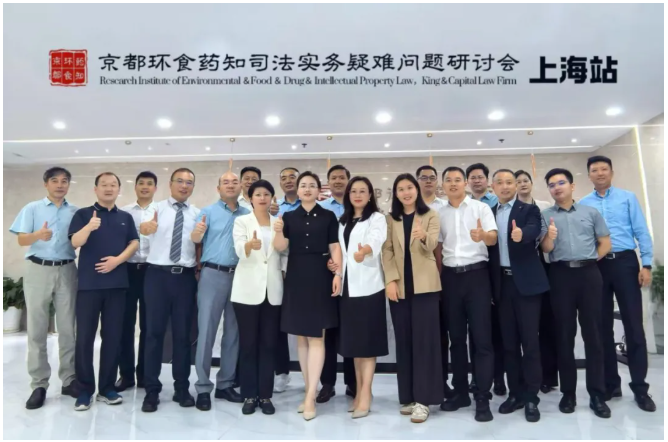
Attending the meeting were: Mr. Tang Jianbin, Senior Partner of Beijing King&Capital Law Firm and Director of Kyoto Law Research Center on Epidemiology, Mr. Zhang Sijia, Deputy Director and Secretary General of Kyoto Law Research Center on Epidemiology, Mr. Wang Zhiqiang, Deputy Director of King&Capital Law Firm, Mr. Lu Xianghui, Director of Kyoto Law Research Center on Epidemiology, Mr. Lu Xianghui, Senior Partner of King&Capital Law Firm and Secretary General of Kyoto Law Research Center on Epidemiology. Senior Partner of Beijing King&Capital Law Firm and Secretary General of the Shanghai Branch of the Kyoto Law Center for Food, Drugs and Knowledge, Zhu Dongsheng, Senior Partner of Beijing King&Capital Law Firm and Deputy Director of the Shanghai Branch of the Kyoto Law Center for Food, Drugs and Knowledge, Li Jianping of Beijing King&Capital Law Firm, Deng Xueping, Director of Shanghai King&Capital Law Firm, Deputy Director of PCG's Global Service Center of Criminal Law for Foreigners, and Director of PCG's National Committee for Criminal Justice, Deng Xueping, Deputy Director of PCG's National Committee for Criminal Justice. Mr. Kang Ye, Director of the Financial Crimes Research Center of the Criminal Defense College of the National Criminal Law Committee of PCG, Mr. Zeng Qinghong, Senior Partner and Director of the Criminal Defense Department of Taihetai (Nanchang) Law Firm, Mr. Wei Yanzhao, Deputy Director of the Tax-Related Crimes Research and Defense Department of King&Capital Law Firm, Mr. Song Zhenzhen, Executive Director of Henan Lifting Law Firm and Researcher of the King&Capital Law Firm, and Ms. Deng Xueping, Senior Partner of Shanghai QuanDian Law Firm. Mr. Zeng Junhong, Senior Partner of King&Capital Law Firm and Director of the Research and Defense Department of Food, Drugs, Environment and Knowledge Crimes, Mr. Li Teng of King&Capital Law Firm, Mr. Sun Jianbao, Deputy Director of the Management Committee and Director of the Criminal Department of Shanghai Parkway Law Firm, Mr. Zhang Qingjun, Senior Partner of King&Capital Law Firm, Deputy Director of the Criminal Committee, and Mr. Du Peng and Mr. Xie Wenqing of King&Capital Law Firm. Mr. Li Mingzhen from Beijing King&Capital Law Firm, Mr. Pan Bingzhu, partner from Zhejiang King&Capital Law Firm, and Mr. Zhuang Zhiye, senior partner from Shanghai Boai Fangben Law Firm. The meeting was chaired by Jiang Yongxi and Zhu Dongsheng.
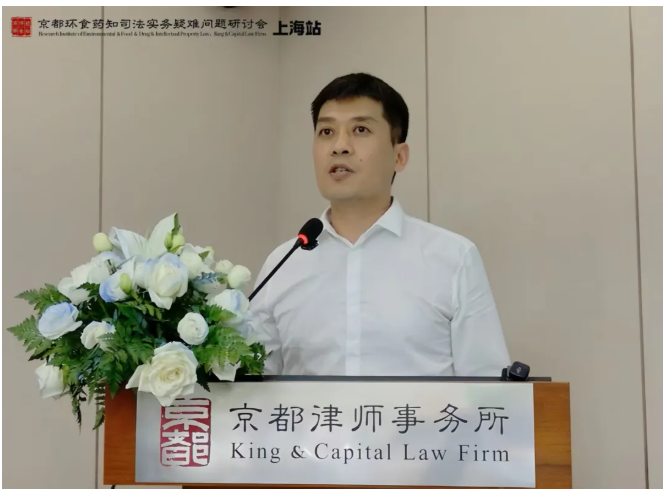
Lu Xianghui
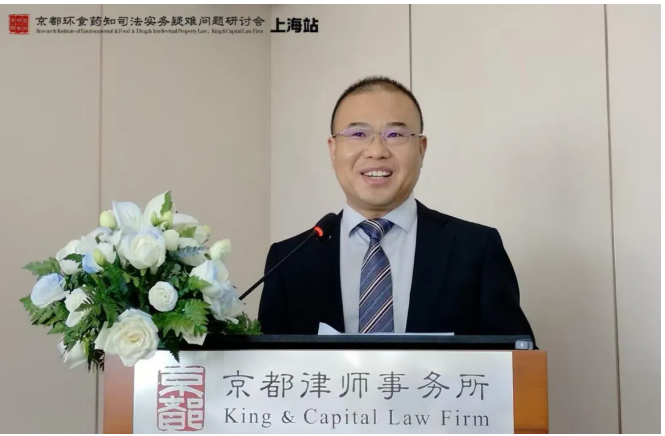
Tang Jianbin
Lu Xianghui and Tang Jianbin delivered speeches for the opening of the seminar, and Tang Jianbin also introduced the new book “Handbook of Food and Drug Cases” which will be published by Kyoto Environment Food and Drug Law Research Center.
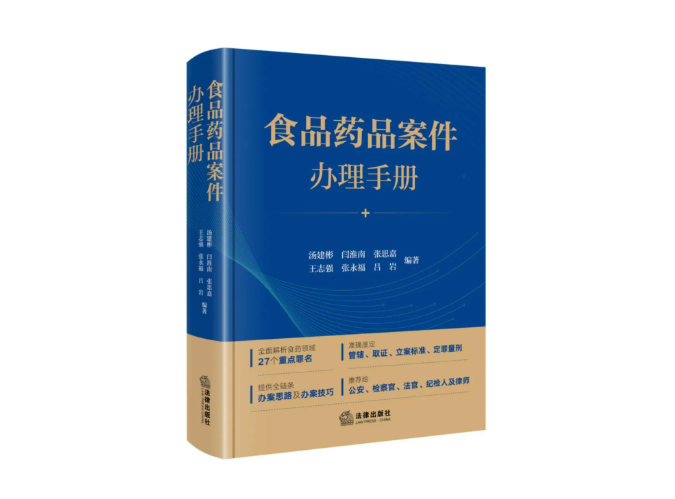
The seminar was divided into four sessions: environmental resources, food safety, drug safety, and intellectual property.

Sijia Zhang
Mr. Zhang Sijia shared the “Evidentiary Standards for Determination of Criminal Objects of Environmental Pollution Crimes - Determination Criteria and Quantity Calculation Rules of ”Hazardous Wastes“”, which systematically explained the determination criteria and quantity calculation rules of “hazardous wastes” in the context of environmental pollution crimes. It systematically elaborates the identification criteria and quantity calculation rules of “hazardous waste” in the crime of environmental pollution, emphasizes the adoption of the dual path of “priority of list + identification of characteristics” for characterization, and follows the principle of “actual investigation + reasonable presumption” for quantification, which provides a clear and operable guideline for the unification of the evidence standard and precision of combating crimes. It provides clear and operable practical guidelines for standardizing evidence standards and combating crimes with precision.
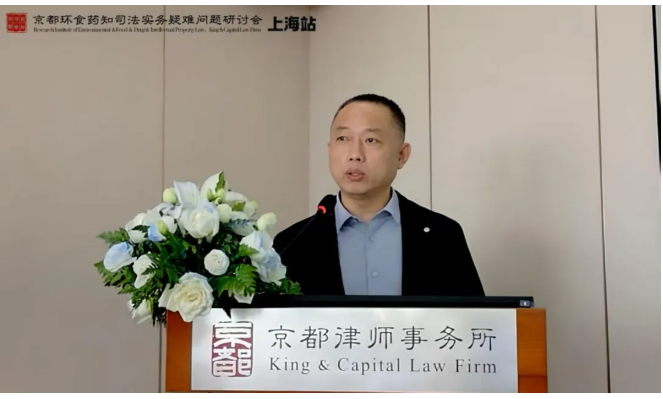
Li Jianping
Li Jianping shared “Analysis of Difficulties in the Interface between Environmental Administrative Law Enforcement and Criminal Justice”, deeply analyzing the real problems of “nine dragons ruling the water” and “disconnection between penalty and punishment” in the interface between environmental administrative law enforcement and criminal justice, and proposing to promote the integration of the “two jurisdictions” through the platform of information sharing, departmental linkage and two-way feedback mechanism, as well as to promote the integration of the “two jurisdictions”. It is proposed that through the information sharing platform, departmental linkage and two-way feedback mechanism, the “two laws” will be promoted from paper synergy to practical co-rule.
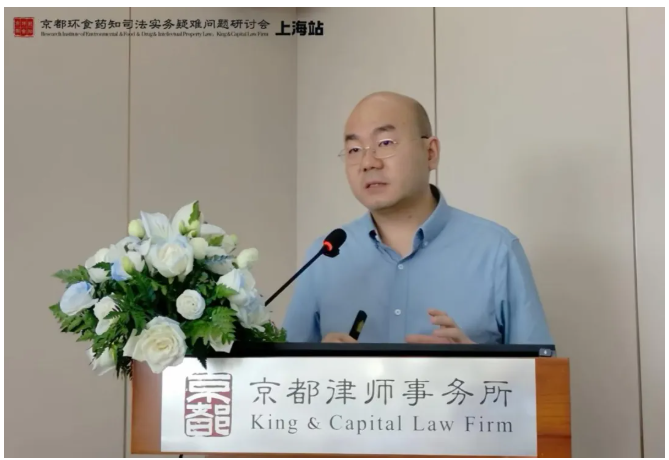
Deng Xueping
Mr. Deng Xueping shared the “Key points of examination and cross-examination of appraisal report in the crime of polluting the environment”, which talked about the elements that should be examined in the appraisal report in the crime of polluting the environment, and emphasized that the cross-examination should be based on the judicial interpretation, to ensure that the appraisal conclusions are scientific and objective.
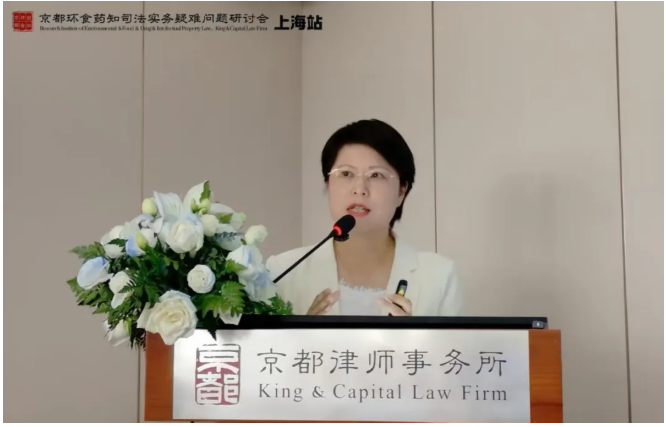
Kang Ye
Mr. Kang Ye shared the “Criminal-Civilian Relationship of Judicial Determination in Environmental Cases”, discussing the criminal-civilian relationship in environmental infringement criminal cases and the use of compensation for environmental damage as a sentencing circumstance in the second-instance trial procedure, so as to achieve the effect of defending environmental resource crimes.
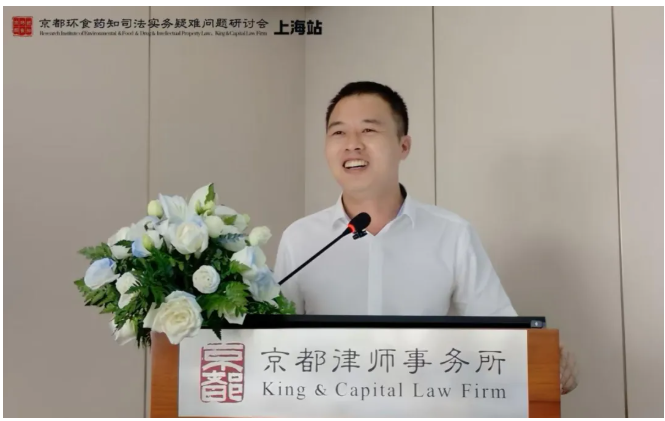
Zeng Qinghong
Mr. Zeng Qinghong shared the “Innocence Defense in Illegal Mining Cases”, systematically sorted out the key points of innocence defense in illegal mining crimes, and showed the evidence review and legal application precision in the defense through typical cases.
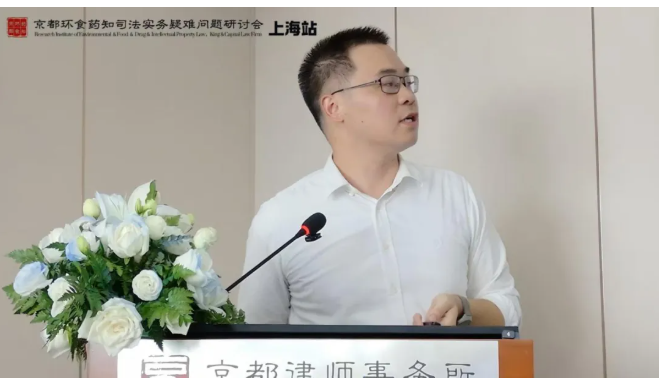
Wei Yanzhao
Mr. Wei Yanzhao shared his thoughts on the defense of a case of pollution of the environment. He analyzed the key points in the defense of a case of pollution of the environment through the illegal disposal of solid waste across provinces and cities, and eventually the suspect was not prosecuted due to unclear facts and insufficient evidence, which highlights the key strategies in the defense of this kind of case.
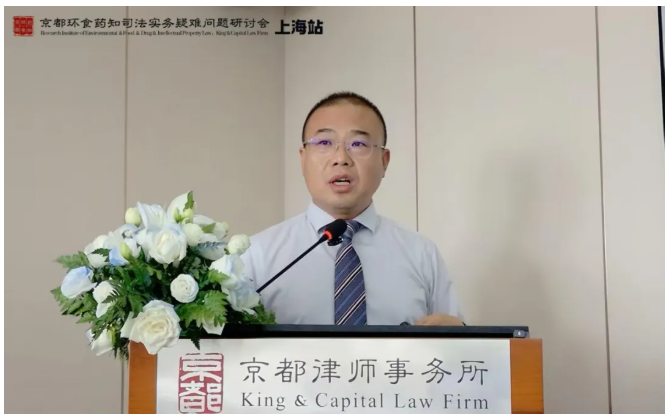
Tang Jianbin
Mr. Tang Jianbin shared the topic of “Examination of Inspection Reports and Opinions of Determination in Food Safety Crime Cases”, which elaborated on the key points of examination of inspection reports and administrative determinations in food safety crime cases to ensure that the evidence is legal and effective.

Song Zhenzhen
Ms. Song Zhenzhen shared the topic of “The path of crime under the difference of the same concept in criminal and civil matters--Taking the crime of production and sale of fake and shoddy products as an Example”, which analyzed the difference of the “same concept” in the cross-cutting field of criminal and civil matters, and proposed to realize the crime through the three-fold path of semantic discernment, legal benefit scrutiny, and procedural safeguard. The triple path to the realization of the crime is proposed through semantic discernment, legal benefit examination and procedural safeguard.
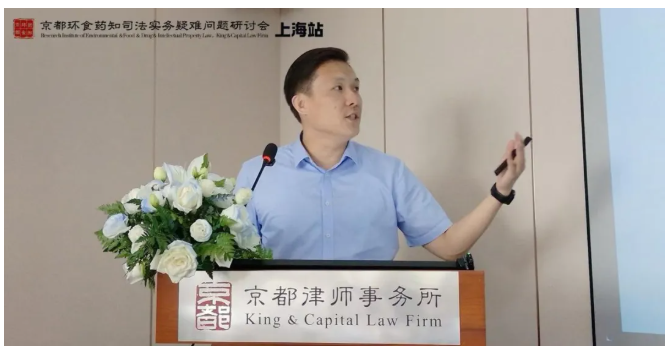
Zeng Junhong
Mr. Zeng Junhong shared “How to Effectively Respond to Unreasonable Administrative Determinations and Local Regulations in Food Safety Crime Cases”, proposing three major strategies to respond to unreasonable administrative determinations and local regulations, and enhancing the professionalism and effectiveness of defense.
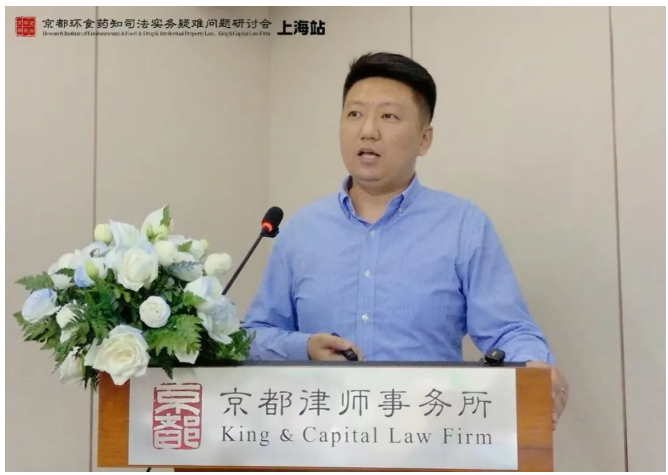
Li Teng
Mr. Li Teng shared “Criminal Law Issues in Campus Food Safety”, focusing on a number of recent campus food safety incidents, interpreting from the perspective of the application of criminal law, and calling on all sectors of society to return to rationality and solve the problems appropriately under the legal framework.
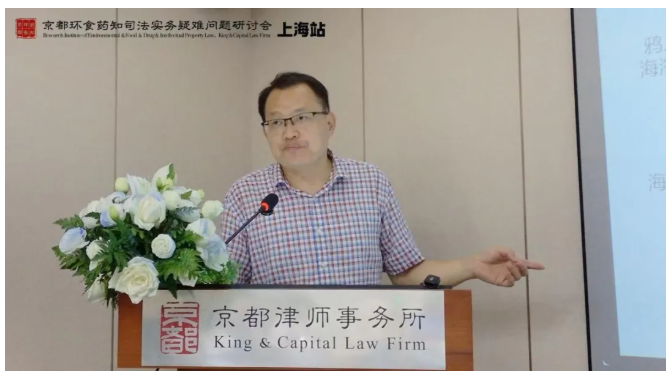
Sun Jianbao
Mr. Sun Jianbao shared a paper entitled “Discussion and Defense of ”Frequency“ Discretion under the Scenario of ”Drugization“ of Narcotic Drugs”, which provided an in-depth analysis of ‘Frequency’ Discretion under the Scenario of “Drugization” of Narcotic Drugs. The content of “The Number of Times” Discretion is both theoretical depth and practical value.
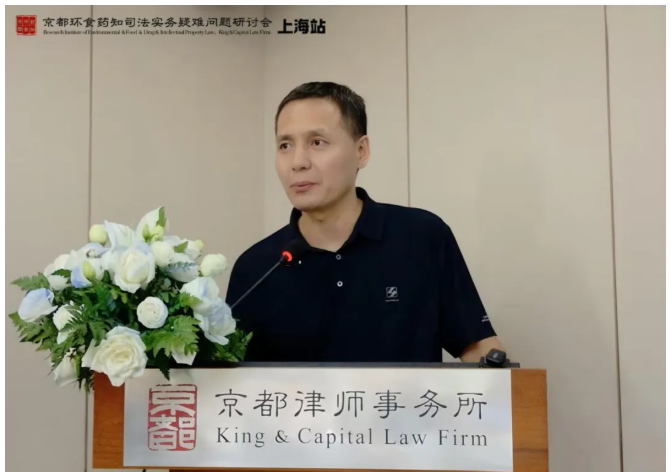
Zhang Qingjun
Mr. Zhang Qingjun shared “The Logic of Drug Crimes”, which systematically analyzed the logic and path of drug crimes, and emphasized the need for prudence and balance of legal interests while fighting crimes according to the law.
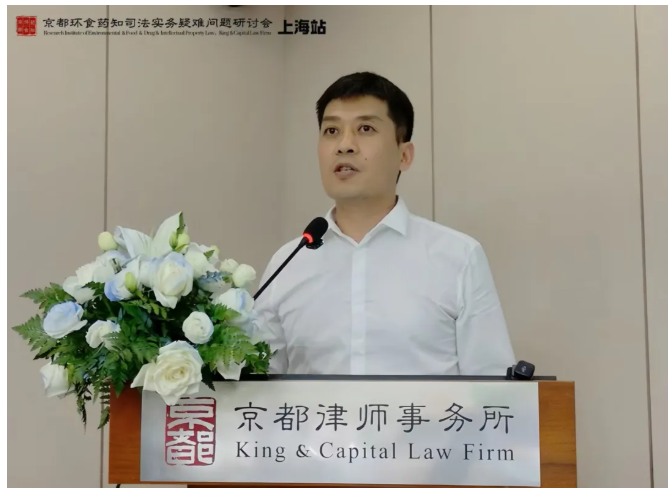
Lu Xianghui
Mr. Lu Xianghui shared the “Legality and Integrity Review of Evidence Collection Procedures”, focusing on the procedural legality problems in the defense of evidence in the field of environmental, food, medicine and knowledge, systematically sorting out the legal requirements of the relevant links and common violations, and providing clear guidelines for lawyers to accurately identify and vigorously challenge procedural flaws in the defense.
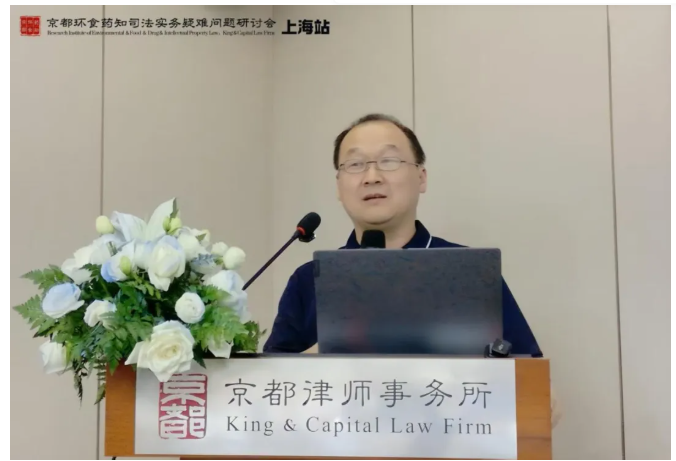
Du Peng
Mr. Du Peng shared the “Different Defense Ideas for the Crime of Selling Counterfeit Drugs and the Crime of Selling Fake and Shoddy Products”, which guided counterfeiters to make better use of the legal rules to challenge the merchants who make and sell counterfeits, and shared the different defense ideas for the two crimes.
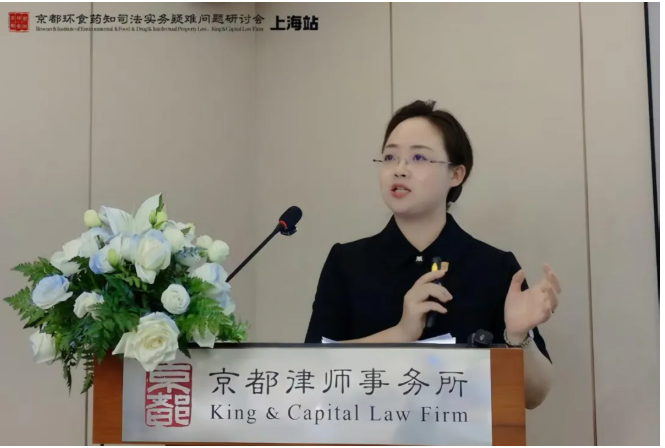
Jiang Yongxi
Mr. Jiang Yongxie shared “Summary and Thoughts on Invention Patent Dispute Handling”, taking Company A v. Company B Infringement of Invention Patent Dispute as an entry point to discuss the key points of invention patent infringement determination, and providing practical references for the handling of patent infringement dispute cases.
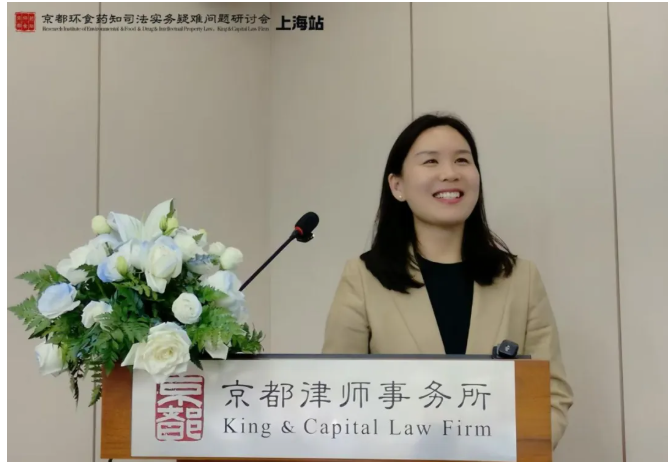
Li Mingzhen
Ms. Li Mingzhen shared the “Key Points of Evidence Examination of Counterfeiting Registered Trademark Crime from Practical Cases”. She systematically sorted out the key points of evidence review for the crime of counterfeiting registered trademark, focusing on the core elements of “the same kind of goods + the same trademark”, and emphasized the principles of statutory rights, statutory criminal law, and doubt in favor of the defendant. She said that the examination should focus on the basis of trademark rights, use behavior, trademark homogeneity, commodity homogeneity, amount of illegal business and subjective intent, and that in practice, attention should be paid to the nature of the appraisal opinion, the authenticity of the electronic data, the corroboration of the verbal evidence and other key aspects, so as to prevent inappropriate involvement of criminal means in civil disputes.
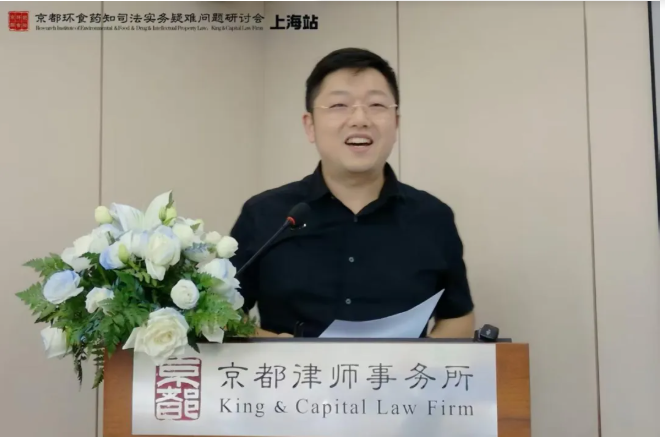
Pan Bingzhu
Mr. Pan Bingzhu shared his personal experience and tactical thinking in defending trademark crimes, which deeply analyzed the key points and tactical strategies in defending trademark crimes, and provided valuable experience for the effective defense of related cases in accordance with the law.
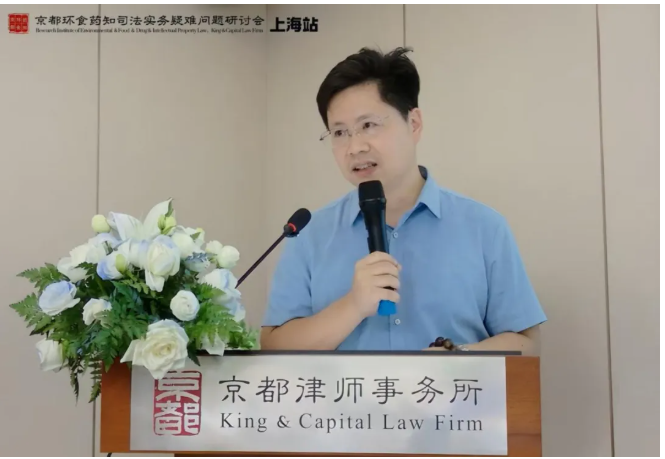
Zhuang Zhiye
Mr. Zhuang Zhiye shared his experience on “Trade Secrets Defense - Criminal-Civilian Crossover”, which elaborated on the use of criminal-civilian crossover strategy in trade secrets cases to build a three-dimensional rights defense model and effectively protect the core interests of enterprises.
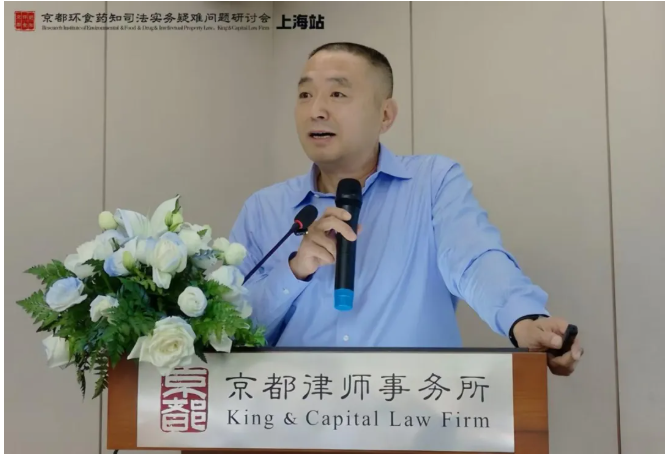
Mr. Wang Zhiqiang
Mr. Wang Zhiqiang shared “Response to Difficult Issues in the Defense of the Crime of Selling Counterfeit Registered Trademarks under the Perspective of the New Interpretation”, focusing on the four major difficult issues of the crime of selling counterfeited registered trademarks under the new judicial interpretation, and providing a clear defense idea and determination path for judicial practice.
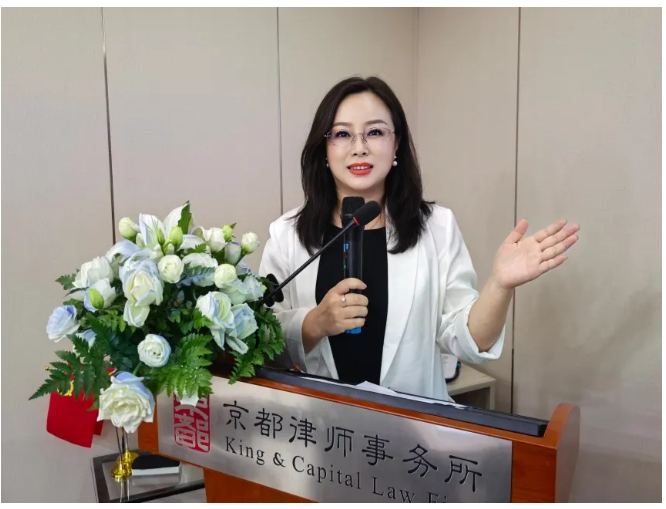
Zhang Sijia
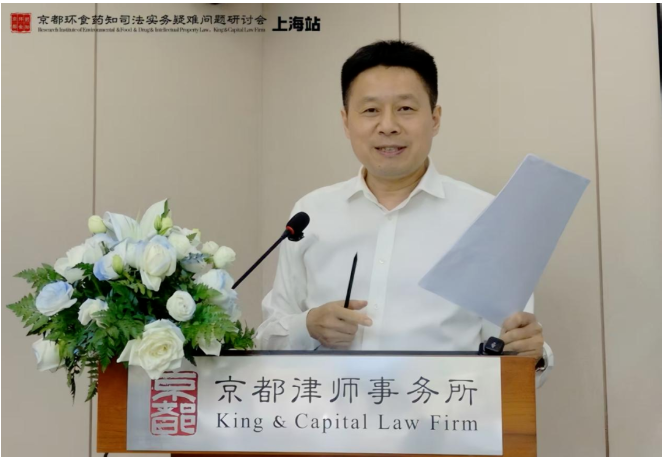
Zhu Dongsheng
Mr. Zhang Sijia and Mr. Zhu Dongsheng made the concluding speeches for this seminar respectively.
At the time of the 30th anniversary of the establishment of King&Capital Law Firm, this seminar set up a platform for exchange and cooperation, bringing together legal colleagues to jointly contribute to the solution of the difficult problems in the judicial practice of environmental, food and drug knowledge.
The relevant person in charge of Beijing King&Capital Law Firm EFD Law Research Center said that the Center and its sub-centers will continue to give full play to their professional advantages, organize more high-quality activities, and contribute more strength to the construction of the rule of law in the field of China's eco-food and drug knowledge, and at the same time, we are looking forward to more people from the legal profession joining in to join hands in creating a new situation for the practice of the eco-food and drug knowledge law!




